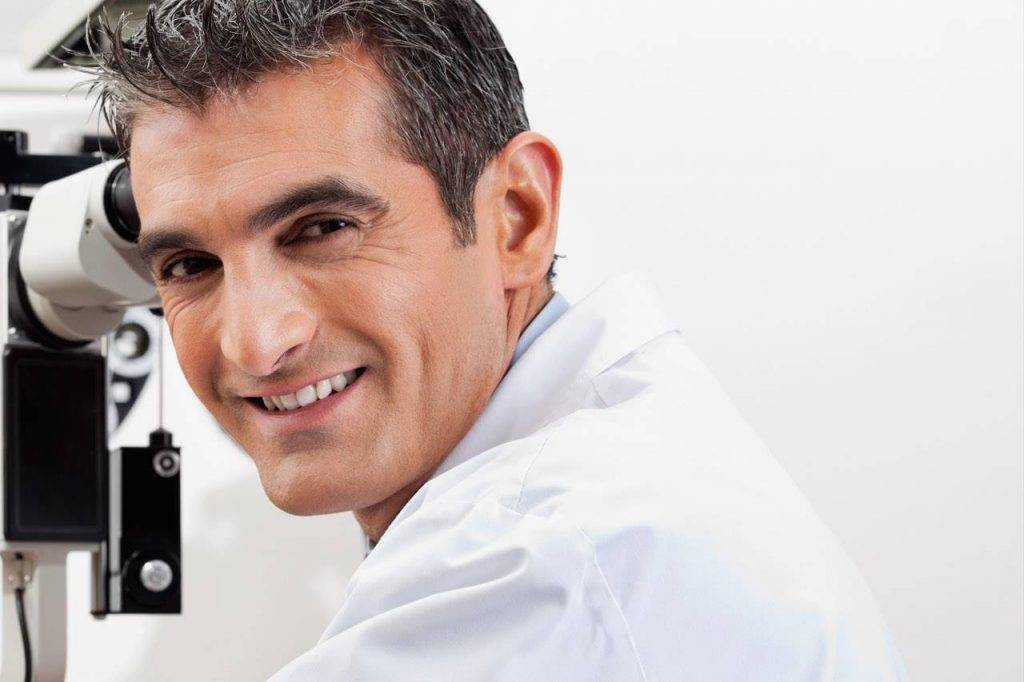Developmental optometrists believe that vision can be developed and improved through a learned process.
A developmental optometrist, also called a behavioral optometrist, focuses on the entire visual function— not just visual acuity, but also the integrity of the visual skills.
There are 17 different visual skills necessary for reading, writing, learning, playing sports— and virtually all other visual tasks. These visual skills enable you to see clearly and comfortably.
The way you see does not only depend on your visual acuity, or clarity of vision, but also on how well your eyes work together and communicate with your brain to accurately process visual information.
When to see a developmental optometrist
It is strongly recommended to schedule an appointment with a developmental optometrist to rule out any vision problems that might be affecting your child’s ability to learn.
Many times, children are mislabeled as ‘lazy’ or ‘learning disabled’ as a result of poor academic success, when really they may be suffering from a vision problem that is affecting their ability to read, write, and learn.
Moreover, it is not uncommon for a child to be misdiagnosed with ADHD or dyslexia, when a vision condition is at the root of their struggles.
Many children also struggle on the playground or the sports field as a result of a vision problem— these children are generally mislabeled as clumsy, accident prone, or simply “bad in sports”.
If your child is struggling in school or on the sports field, a comprehensive evaluation by a developmental optometrist is highly recommended.
Do developmental optometrists only see children?
No, adults can benefit from a comprehensive vision evaluation as well.
Many adults suffer from digital eye strain, convergence insufficiency, eye turns, lazy eye, or even dizziness and imbalance. All of these vision conditions, and more, can be treated by a developmental optometrist.
A developmental optometrist will perform a comprehensive vision evaluation and provide an appropriate treatment plan— usually involving a program of vision therapy and/or therapeutic lenses.
If you feel you or your child could benefit from Vision Therapy, schedule an appointment with a vision therapy eye doctor and they will answer all your questions.
SEE RELATED: Guide to Vision Therapy
What does an eye exam with a developmental optometrist look like?
While your eye exam will include tests for visual acuity, it will also include an assessment of your visual skills.
Your eye exam will focus on the following areas:
- Binocular vision: This test will determine how well your eyes work together to transmit visual information to the brain.
Your eye doctor will look at your ability to accurately focus your eyes simultaneously, for single vision— and look for signs of crossing, wandering, or misalignment.
- Oculomotility: This test will evaluate your ability to control where you focus your eyes, and your eye tracking abilities— skills necessary for reading.
Your eye doctor will look at your ability to follow a moving target smoothly as well as your ability to rapidly shift focus from one point to another.
- Accommodation: This test will evaluate your ability to focus your eyes on objects at varying distances.
Your eye doctor will look at your ability to change focus from near to distant images, both quickly and smoothly. They will also assess your ability to maintain clear focus during near vision tasks for extended periods of time, without experiencing fatigue or blurry vision.
- Visual perception: This test will evaluate your ability to analyze and understand what you see, as well as your visual memory and visual discrimination abilities.
- Visual motor integration: This test will evaluate your eye-hand-body coordination.
- Balance and coordination: This test will evaluate whether your visual systems are effectively transmitting visual information from your brain to your body’s motor centers for good coordination and balance.
How do developmental optometrists treat vision conditions?
Developmental optometrists diagnose and treat a variety of vision conditions. Many vision problems can be treated with vision therapy, prism lenses, or a combination of the two.
In some cases, vision therapy is recommended in combination with surgery— usually if the patient presents with a significant eye turn.
Developmental optometrists not only treat the presenting problem, but also provide education on ways to prevent the development of vision problems, protect your vision, and improve your visual skills.
A primary goal of developmental optometry is to ensure that patients enjoy clear and comfortable vision for school, work, sports, and virtually all aspects of daily living.
Some developmental optometrists focus on a specific area of practice, such as:
- Children’s vision
- Vision-related learning difficulties
- Sports vision
- Traumatic brain injuries
- Parkinson’s disease
- Myopia management
LEARN MORE: Guide to Vision Therapy
If you think you or your child may be suffering from a vision problem, schedule an appointment for a comprehensive vision evaluation with a developmental optometrist near you.

